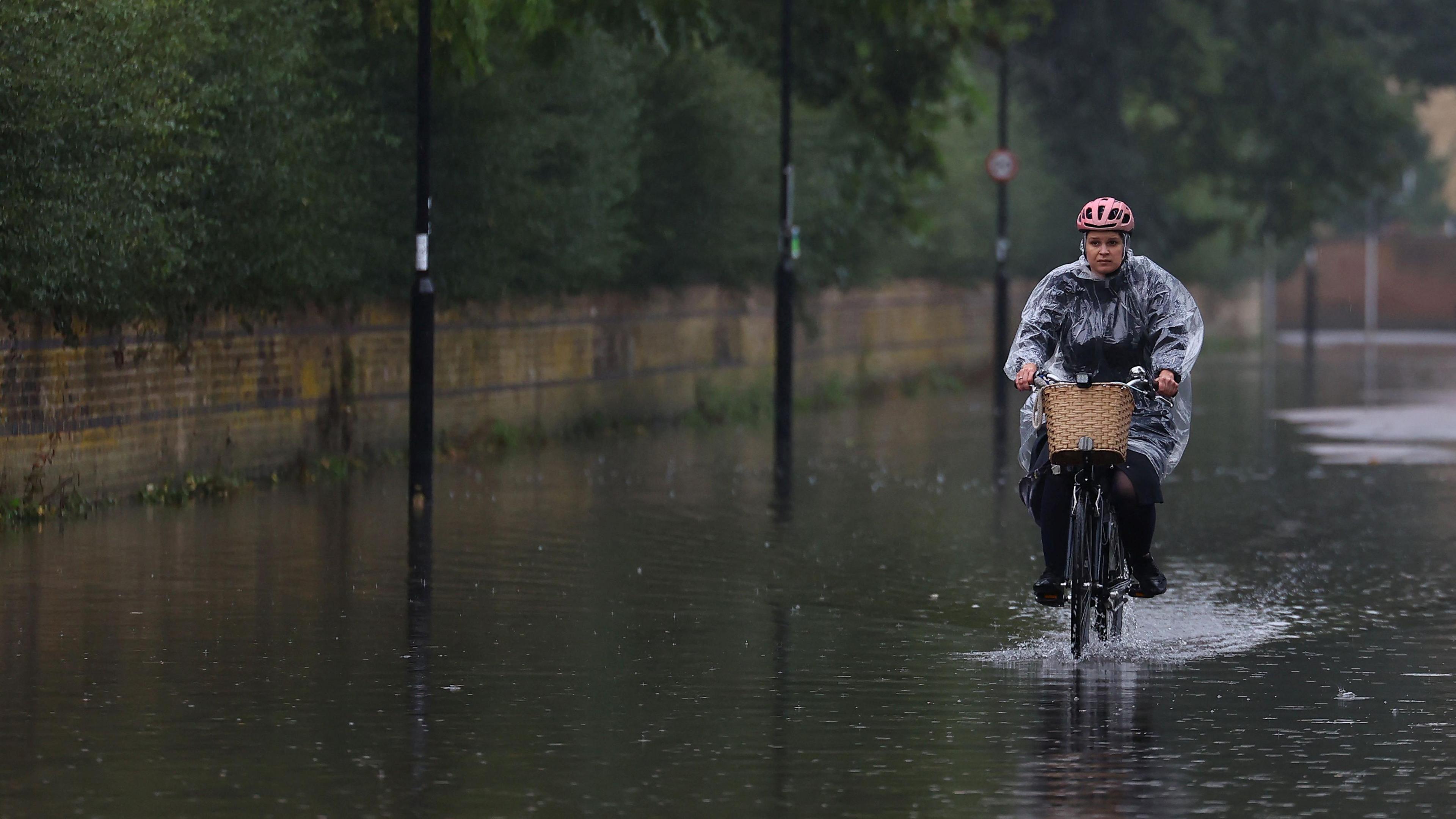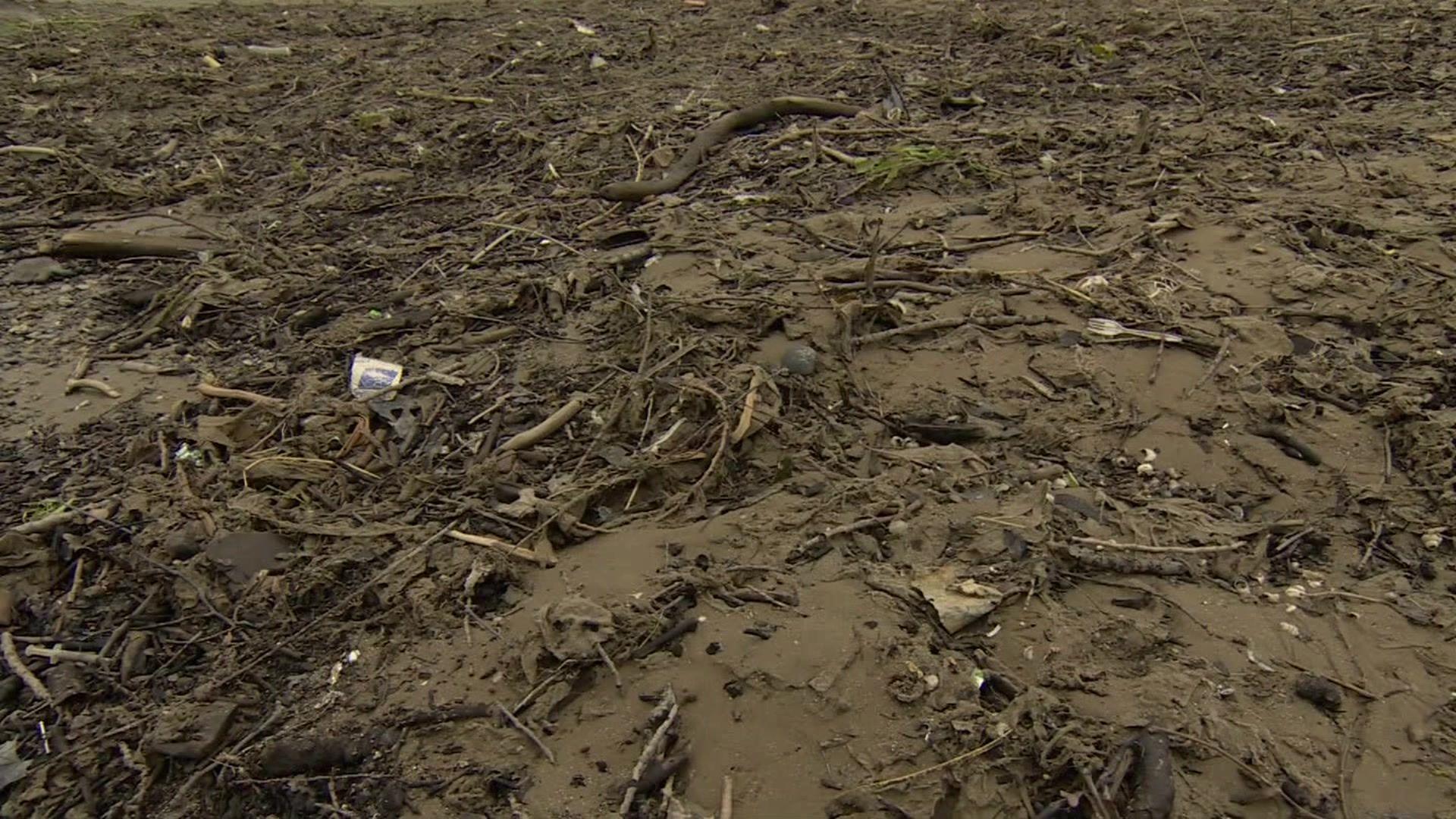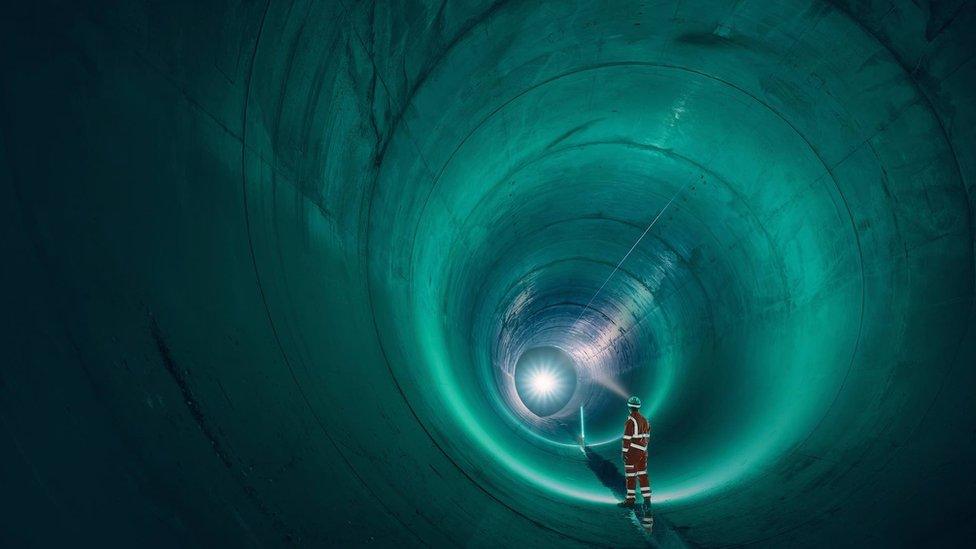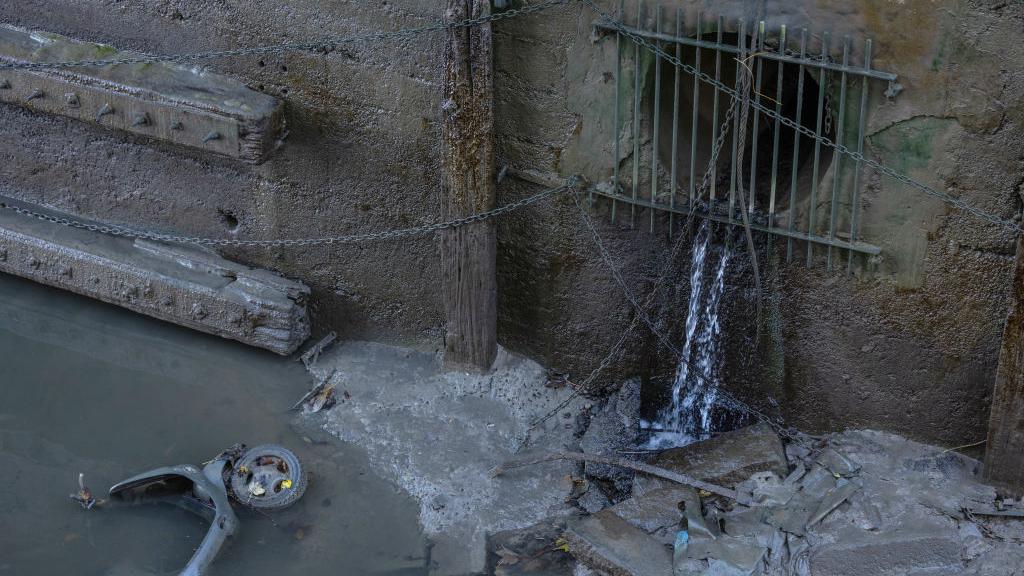Gates open on Thames Tideway Tunnel super sewer
Thames Tideway Tunnel: Inside London's new 'super sewer'
- Published
The first four sites along London's new "super sewer" - officially known as the Thames Tideway Tunnel - have been brought into operation.
The valves, which operate like giant gates, are being used at four of the 21 locations that make up the system.
The rest are due to come online in the coming months, with the sewer operating at full capacity by 2025.
Tideway CEO Andy Mitchell said: "These are early days, with more connections to make and further testing to come, but the super sewer’s positive influence on the health of the Thames will increase over the coming months."
'Protect the river'
Data published on Monday showed that in one day, when London saw heavy rainfall on 23 September, 589,000 cubic metres of wastewater were captured by the tunnel with just the first connections activated.
Once fully operational, the tunnel system will have a capacity equivalent to 640 Olympic-sized swimming pools.
It will then be operated by Thames Water as part of its London wastewater network.
Mr Mitchell said: "This is an important moment for the Thames. The super sewer has been switched on and is starting to protect the river from sewage pollution.
"After eight years of construction, in which almost 25,000 people have contributed more than 40 million working hours, this system is operating for the first time."

The "super sewer" was in action on 23 September when the River Thames overtopped its banks
The Environment Agency said the project would reduce storm sewage spills into the tidal Thames "by around 95%".
"We are confident that the project will markedly improve the river for wildlife and for people," said chairman Alan Lovell.
"We are regulating the system with environmental permits and will continue to monitor water quality and aquatic life in our capital’s river."
Water Minister Emma Hardy said the tunnel was an example of the "transformation and investment" the government wanted to see "up and down the country".

Stopping sewage overflows should end the build up of so-called wet wipe islands
Thames Water CEO Chris Weston said the "huge scheme" was the result of a £4.5bn investment by its customers.
He added the opening of the first four gates was an "exciting moment" in the tunnel's progress to "help prevent sewage pollution entering the River Thames".
The Thames Tideway Tunnel project began in 2016 and has involved works across 24 construction sites from Acton in west London to Abbey Mills Pumping Station in Stratford, east London.
Listen to the best of BBC Radio London on Sounds and follow BBC London on Facebook, external, X, external and Instagram, external. Send your story ideas to hello.bbclondon@bbc.co.uk, external
- Published27 March 2024

- Published5 June 2023
